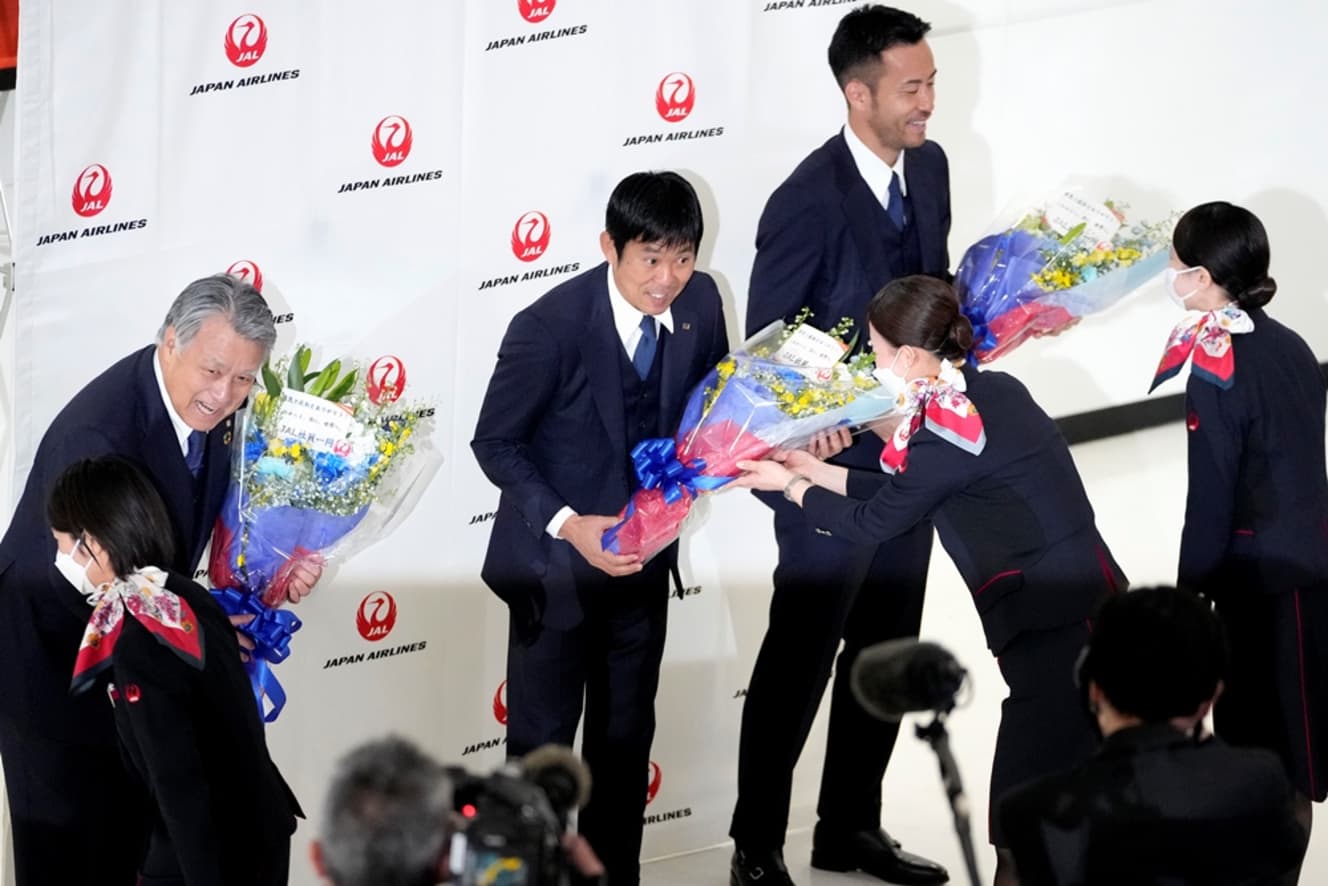Japan Football Association switches from JAL to ANA after more than 20 years of support from Dentsu

The Japan Football Association (JFA) recently signed a major partner agreement with All Nippon Airways (ANA). ANA will support all categories of the national team as well as various JFA projects such as player and referee training and grassroots (creating an environment where soccer can be played anywhere), etc. Japan Airlines (JAL), which has supported the JFA since 1999, will become a “major partner” of the JFA. The decision to “switch” from Japan Airlines (JAL), which has supported the JFA since 1999, was due to the weakening of Dentsu’s power as a bridge between the JFA and its sponsors, who were suspended from bidding by the central government and local governments nationwide after the Tokyo Olympics bid-rigging scandal. The JFA executives themselves had been busy with sales and marketing activities without relying on Dentsu.
Finally, the Dentsu monopoly was beginning to show signs of fraying.
A former JFA official in charge of sponsorship contracts spoke cryptically, “Dentsu’s power has clearly disappeared.
Dentsu has clearly lost its power, and we can no longer rely on them 100%.
Last December, Japan’s national soccer team defeated past champions Germany and Spain at the World Cup in Qatar, and there was a great deal of excitement in Japan. This past March, the JFA, which has supported the national team, was in the process of renewing contracts with its major sponsors. There are many bright spots in the JFA’s roster, including Ritsu Doan (SC Freiburg, Germany) and Kaoru Mitoma (Brighton), who continues to impress in England, but surprisingly, sponsorship contracts are proving difficult to obtain.
The JFA, which earns nearly 20 billion yen annually, has relied on Dentsu, with whom it has a partnership agreement. Even though the Tokyo Olympics bid-rigging scandal has come to light and Dentsu has come under increased scrutiny, the JFA is still supported by major sponsors through the company’s intermediaries. Even under these circumstances, the JFA renewed its partnership agreement with Dentsu, signing an eight-year, 35 billion yen contract from April 1 to the end of March 2011, an extraordinarily large contract that no other sports organization would be able to match.
In addition to Dentsu, the JFA has been an official supplier of uniforms and other items to adidas Japan since 1999, and has also renewed contracts over the years with the Kirin Group, Nishitetsu Travel, and others.
However, it is not clear whether Dentsu is working as vigorously as in the past to acquire sponsors and renew contracts.
Dentsu was involved in bid-rigging for the Tokyo Olympics, and the company has admitted to collusion. Dentsu’s sponsorship negotiations have slowed to a crawl. Dentsu’s sponsor negotiations slowed down immediately. The sponsors who offered their support did not want to reveal the fact that Dentsu was involved. Therefore, JFA executives, led by JFA President Tajima, are now engaged in “sponsor sales.
At the press conference for the sponsorship agreement with ANA, JFA Chairman Tajima said, “We are grateful to ANA for agreeing to the partnership agreement that we have been discussing for some time amid the prolonged high cost of living and the COVID-19 crisis. ANA has always been a major contracting partner of the JFA,” said an ANA official.
ANA has raised its hand many times in the past when the JFA and JAL contracts were up for renewal, asking to be a sponsor, but Dentsu always objected. However, there was always opposition from Dentsu. (From the point of view of the contact person at Dentsu, there was no way we could remove JAL, which had been a long-time supporter of ANA. So I think we have bounced back and forth against the wall of Dentsu.

The JFA has been the sole sponsor of the Japanese national soccer team for 22 years, and when JAL went bankrupt in 2010, the JFA was the first to ask JAL to continue its support for the national team. In renewing the agreement, the JFA asked JAL to expand the scope of its sponsorship. The JFA wanted to support not only the national team, but also all of the JFA’s projects, including player and referee development and grassroots (creating an environment where soccer can be played anywhere), and the contract price was increased. However, JAL could not accept the terms of the contract, which was estimated at 200 million per year, and decided against renewing it. ANA, which had long wanted to sign a contract with the JFA, was then offered the opportunity.
However, it seems that the JFA did not ask Dentsu entirely to sign the contract with ANA. A veteran soccer reporter reveals.
ANA has had a club team since the amateur days of the Japan Soccer League and has had ties with the JFA since then. JFA could not “piggyback” on Dentsu, which was in dire straits. Therefore, it seems that he used his long-established connections to secure a contract with ANA. Many JFA executives, including Takeshi Okada, who once served as national team coach and is now vice president, Saburo Kawabuchi, and Kunishige Kamamoto, were also members of Waseda University’s soccer club.
Until now, sports organizations that have received support from Dentsu, led by the Japan Football Association, have been financially enriched by the numerous sponsors they have brought in, but this has had the negative side effect of allowing Dentsu to take the lead. However, now that it is known that Dentsu was at the center of the Tokyo Olympics bid-rigging scandal, a damage to their image is inevitable. It will take a considerable amount of time to regain trust. The fact that the JFA, which has the deepest relationship with Dentsu compared to other sports organizations, for the first time did not rely on Dentsu and had its top management engage in “sales” activities will have no small impact on other sports organizations in the future.